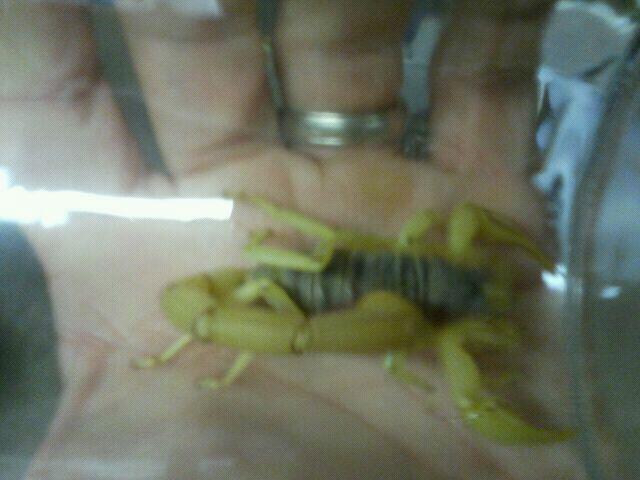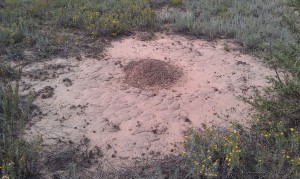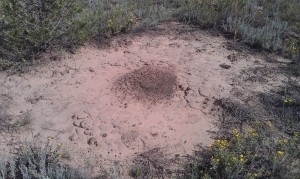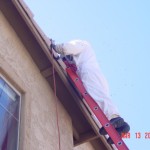Some fun at ProBest Pest Management!
The staff and management at ProBest Pest Management tries real hard to honor and say thanks to all the staff as often as possible. Since we are not the largest company out there, we have to be somewhat imaginative I mean what would the point be to have an employee of the month when there are really only 10 of us.
Amount 8 months ago we did an EXTREME AFRICANIZED BEE JOB, they were some of the nastiest of the bees we ever have to deal with. Well one of the crew was stung 13 times and another 3 times. Well just a few days ago it happened again – 11 stings and that is with a bee suit on. I was going to show the picture of his face but he had to take the next day off cause it swelled up, WOW – got to watch out for stinging pests and that is why you should always call a Pest Management Professional… Even if we get stung – we get rid of the bees.
So to honor the dedication and professionalism we decided to start a little trophy system.
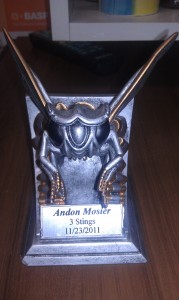
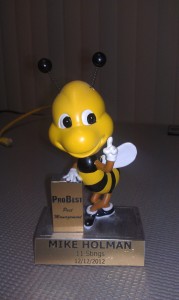
Just to gloat a little, after working for over 25 years in the pest control field – I have only been stung twice to my recollection.



